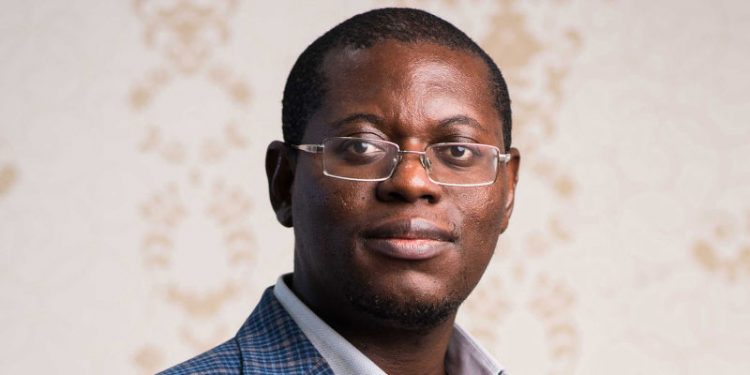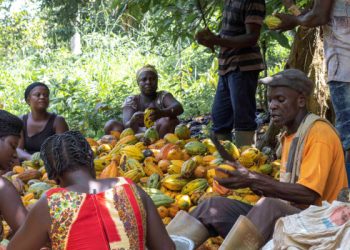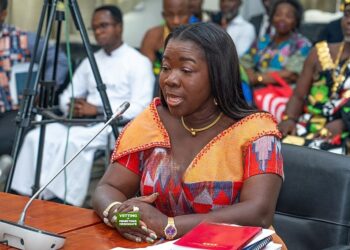Ghana wants to borrow $1.45 billion to invest in two seemingly “stranded” oil assets – Pecan and Nyankom – off its coast.
$1.1 billion will go directly to the current Norwegian controllers of the two fields – mainly Kjell Inge Rokke of Aker ASA, his family fund and spouse – and the rest will underwrite some of the estimated $2.5 billion the Norwegians claim is still needed to get the first drops of commercial oil out of the bigger of the two fields – Pecan – in 2024.
Why are Ghanaian activists up in arms? Getting the full picture will require trawling through thousands of pages of dense documents. But the simplified summary of some of their key concerns below is a good start.
1. GNPC – Ghana’s national oil company – took $47 million from the government to buy 10% of the *Pecan field* (then operated by a company called Hess) in 2015. They took the money and didn’t buy the stake. Now they want to spend more than $750 million for 27% more stake in the same field, thus valuing the foregone 10% stake at over $250m.
In fact, four years later, they would even have their entitlement to ~49% of the field whittled down to 10%. An organisation prone to such strategic mistakes should have all their spending plans scrutinised very carefully. Yet, the Ghanaian Parliament spent just two hours evaluating their latest request before giving them a mandate on August 5th, 2021, to spend up to $1.45 billion on this new frolic.
2. The block that the Nyankom field – the smaller of the two fields – is on was actually operated by the GNPC in 2013, when it held 79% of the stake. They kept renegotiating their stake downwards until by 2019 they only owned 15%.
They now want to spend precious public money on buying 55% more of the block to take their stake back up to ~75% so they can become a “co-operator”. This means paying nearly $400 million for something they once had for almost nothing. Again, clearly an organisation suffering from serious strategic myopia that needs independent babysitting.
3. At any rate, a company doesn’t really need to own a large piece of an oil block at inflated prices to become a field operator. After the proposed $1.1 billion deals are through, the Norwegian billionaires will own just about 13% of Pecan and 15% of Nyankom but they will still become the de facto operator of the merged field. GNPC actually justifies the deal on grounds of an opportunity to understudy Aker after the deal.

Clear evidence that oil field “operatorship” is about technology, human resources and reputation. What has GNPC done to acquire these virtues with all the money it has been receiving from the state – roughly $200m a year – so far? It is quite depressing that an organisation founded in 1983 to produce oil, with many opportunities to do so in the past, would want to pay so much to undergo pupillage with Aker, which was only founded in 2004, just four years before they first entered Ghana.
4. If it is merely having high stakes in a block and the title of “Operator”, then GNPC is already an operator. It currently operates the Offshore South West Tano (OSWT) block through its subsidiary GOSCO. Why has it failed to invest in that field since 2016 and why hasn’t it used this opportunity as an operator to acquire capabilities? Why hasn’t it done any drilling and serious exploration on OSWT? How then can it justify paying inflated sums on stranded assets as a path to operatorship?
5. It cannot be just about money because in 2018 and 2019 GNPC offered guarantees for other state owned entities to raise $1bn for mostly consumption rather than investment. It costs about $50 million on average to drill in the various blocks in which GNPC has a stake in Ghana, including those on which it is the operator. If operatorship was indeed the goal here, why has GNPC never bothered to drill?
6. Instead, GNPC has been spending its money-making shoddy investments like the troubled Sankofa Prestea gold mine and an underperforming motel in remote forest reserves in Ghana. Once again, it is clear that GNPC likes to anchor commercial deals more than it wants to acquire technical capabilities. Consequently, its desperation to raise billions at this stage must be looked at from the point of view of the commercial contracts it can control and not in terms of any desire to acquire the skills, technologies and reputation associated with operating producing oil fields.
7. This bears repeating: GNPC is already an operator on Ghanaian fields like OSWT, and has had stints as an operator (with nearly 80% stake) on even the Nyankom field it now wants to buy for roughly $400 million. It has just refused to invest in the hard things that will make it a good operator. It has instead focused on side gigs and deals.
8. GNPC hints that this time things could be different because it shall be understudying Aker. But GNPC is already a statutory and business partner of all oil companies that have ever operated in Ghanaian waters, many with a far superior track record and capacity than Aker. It can enter into technical contracts with any of them for far cheaper than what it intends to pay to buy Aker’s mentorship. It already has just such a joint venture with well-regarded oil services & tech company, Technip, that it has failed to resource adequately for almost a decade now.
9. It bears emphasising the argument of the Civil Society Organisations (CSOs) and their activists: both fields – Pecan and Nyankom – that GNPC seeks to buy are grossly overvalued. The method used to value them, the so-called Discounted Cashflow (DCF) method – looks at future earnings. However, the long-term price of oil used ($65 per barrel) is far higher than what most analysts are using nowadays (~$50) and the projected oil volumes from the fields are highly speculative.

One of the two fields – Nyankom – has only one successful well drilled so far (the other well sunk there failed), and it has not been appraised, a critical pre-requisite before an oil field can be considered investment-worthy. At least 6 more successful wells will have to be drilled there to give investors comfort about its prospects. The second field, Pecan, is in very deep waters and will be expensive to run so costs are likely to be high. Taken all these facts into consideration, the Activists are of the view that the fair value to pay for an increased stake and role in developing the two fields is closer to $400m and not $1.1 billion. After all, the Norwegians are selling Ghana roughly 70% of assets they picked up for less than $200 million 2 and 3 years ago respectively.
10. To obscure the inexplicable appreciation of the value of the fields, the GNPC argues that $1.2 billion has been spent on useful capital infrastructure, which the Norwegian billionaires would have had the right to offset against taxes paid to Ghana under our petroleum accounting laws.
Those foregone taxes would have been repatriated from Ghana but shall now stay put here because of the deal. Very strange argument. First, the filings made by the Norwegians in Norway suggest far less has been spent on the fields – just a little over $300 million. The companies that sold them the fields – Hess and Petrica – also issued reports from which we can glean spending of a little over $300 million. What GNPC is really saying here is that even should this venture prove successful, Ghana stands to lose over $600 million in future taxes due to shady accounting if its version of history is left unchallenged.
11. Then there are concerns about crony dealings. Some Ghanaian CSO activists met with the people GNPC says they and Aker hired to do an independent valuation – Lambert Advisory. In their presentations, they revealed that a company called Fueltrade has been inserted into the Nyankom deal for 5% (a stake that all along everyone thought was owned by a company called Quad). How come this transition was never publicised, considering the controversy surrounding how both Quad and Fueltrade came to own their stakes in the first place?

12. In a similar vein, in GNPC’s presentation to their Ghanaian cabinet before it hurriedly approved the deal (four days before the proposal was sent to Parliament for further ratification), they mention that after they increase their stake by 27% more in Pecan and by 60% more in Nyankom, they will merge both fields and create a Special Purpose Vehicle (SPV) to own the asset jointly with the Norwegians (along with pre-existing equity owners like Lukoil), who despite becoming minority owners (with about 20% combined stake) will become de facto operators renting out production platforms to Ghana.
They also revealed that 5% of the SPV shall be allocated to “Indigenous businesses”. Given that this is a “back-in” transaction by an existing equity holder, funded through a sovereign loan, the thought of lurking private beneficiaries deepen concerns about cronyism.
13. Consider that, in 2019, the Government of Ghana went to Parliament twice to amend the agreements covering both fields, and on each occasion, Ghana’s stake was lowered and amendments made to give the country very little say in how the fields are run. Aker and its Norwegian billionaire controllers insisted that this was necessary to be able to raise money to develop the fields. After struggling to raise the money, they have decided to dump the fields on Ghana at an inflated price, whilst staying on to rent equipment to Ghana also at inflated prices. What is worse, Ghana wants to pay for the privilege of being ripped off.
14. For all the above reasons the entire arrangement looks very fishy. It looks like Aker/Inge Rokke has teamed up with GNPC big fishes to rip off Ghana in diverse ways, first by tricking Ghana to give away its rights for nothing and then getting the country to buy them back at the cost of a fortune. And they will succeed unless they repent or are stopped.
15. This assessment is particularly apt when GNPC makes it look as though the Aker assets are the only ones available if it wants to become a lead oil producer. A false premise that bestows undue leverage on Aker in the negotiations. The truth is that there are other seemingly stranded fields in Ghana with discoveries that have more estimated oil resources than Nyankom and are available for cheaper if GNPC’s genuine intent is to become the operator of a producing field.
Such prospects include Kosmos’ Wawa and Akasa, and Erin Energy’s Expanded Shallow Water Tano. The leverage is therefore actually on Ghana’s side. It is thus unpatriotic, from where the CSO Activists stand, for GNPC to be bearing down on the path it is currently on. But it is not too late to redeem themselves.










Discussion about this post